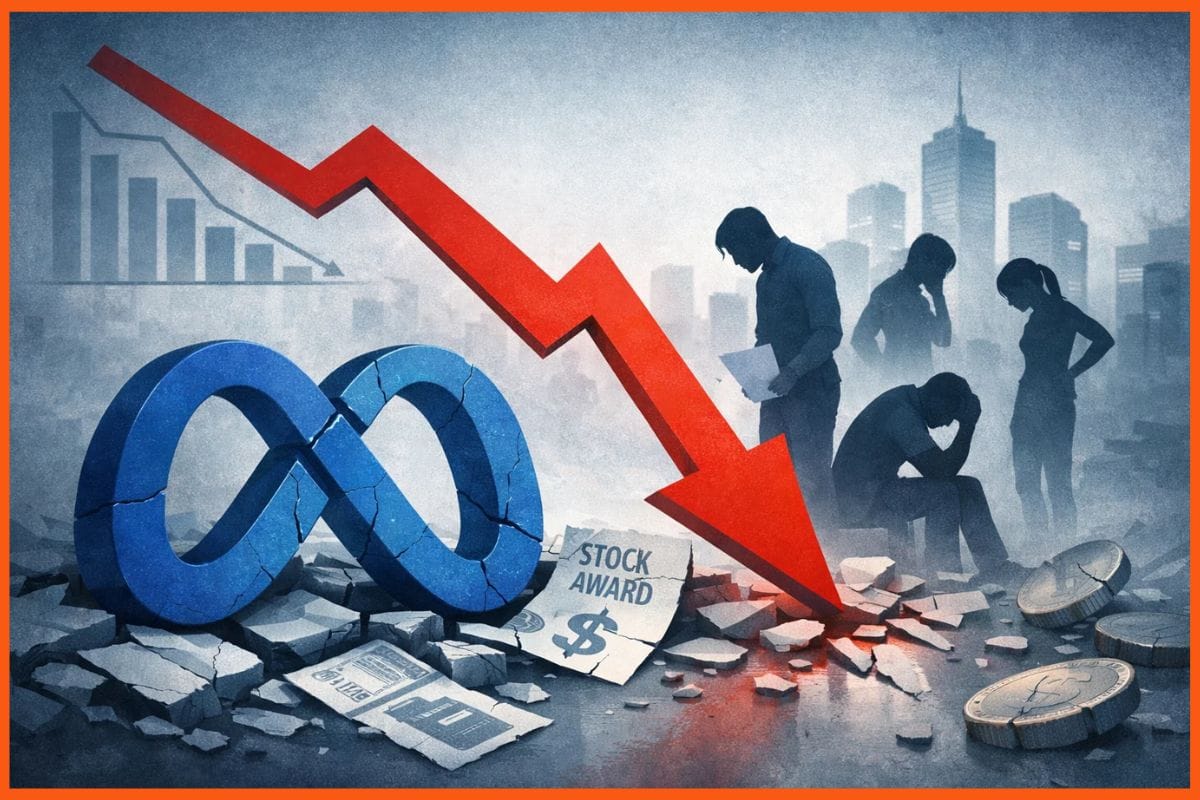Wall Street in Turmoil as Trump’s Tariffs Shake Markets
Close to $2 trillion in value has vanished from American stock markets as concerns about tariffs spur a huge selloff.

The US stock market took a huge hit as about $1.7 trillion was wiped out from the S&P 500 Index at the start of trading. The sharp drop came after President Donald Trump declared sweeping tariffs, which sent fear of a recession through the markets. Companies that depend on international supply chains were the most affected, with big names like Apple, Nike, and Walmart taking major hits.
Massive Market Selloff
When trading commenced, the S&P 500 took its possibly largest drop since 2022, with close to 70% of its companies going down. Apple Inc., which relies almost entirely on China for manufacturing, fell 8%. Nike and Lululemon, with their main supply link in Vietnam, lost about 10% each. Then there were the big retailers. Walmart fell 2%. Dollar Tree dropped 11%. By the time trading ended, the S&P 500 had closed down 6.4%.
By midday, the market downturn took a turn for the worse, with the S&P 500 sinking 4%, marking its severest single-day dive since the COVID-19 crash. The Dow sank an astounding 1,412 points, down 3.3%, while our old friend, the tech-heavy Nasdaq, was hit particularly hard, plummeting 5.1%. Futures tied to the indices were spiraling downward too—S&P 500 futures were off 5%, Dow futures were down 2.8%, and Nasdaq futures were lower by 3.8%. Oil prices also took a beating, slumping over 4%, while the US dollar fell to its lowest value against the Japanese yen in months.
Tech Stocks Lead the Decline
The selloff hit the tech sector hardest. The Philadelphia Semiconductor Index plunged almost 6%. Nvidia, Broadcom, and Micron Technology each dropped over 5%.
The Magnificent Seven tech stocks (Alphabet, Amazon, Apple, Meta Platforms, Microsoft, NVIDIA, and Tesla) lost value. A combined drop of more than $1 trillion from these stocks was noted over two trading days.
Economic Consequences and Recession Fears
Market analysts fear that Trump’s tariffs—now more aggressive than his first-term measures—could set off a broader economic downturn. Atif Malik of Citigroup estimated that if Apple had to absorb the new tariff costs, which are applied at a rate of 25% (up from 10%) on most Chinese products, its gross margin could shrink by as much as 9%. Meanwhile, JPMorgan economist Michael Feroli warned that the tariffs represent the largest tax hike since 1968 and could increase inflation by 1.5%, which would then dent personal incomes and consumer spending.
According to Bhanu Baweja of UBS Group AG, if there is continued uncertainty over tariffs or if talks with trading partners stall, the risk of a downturn in the U.S. stock market rises. Some analysts go further and say that if trade developments worsen, the S&P 500 could drop below 5,000—much deeper into slump territory than where it stands right now.
A universal 10% import duty and additional charges on certain countries characterized the new tariff regime. Far from being equal, these tariffs hit China the hardest, with their total coming to 64% when you add up the previous trade measures. The European Union (20%), Taiwan (32%), and Vietnam (46%) were also hit hard. The new regime sent financial markets across the globe into a tizzy, though international reaction was considerably milder than Wall Street's.
Must have tools for startups - Recommended by StartupTalky
- Convert Visitors into Leads- SeizeLead
- Website Builder SquareSpace
- Run your business Smoothly Systeme.io
- Stock Images Shutterstock




